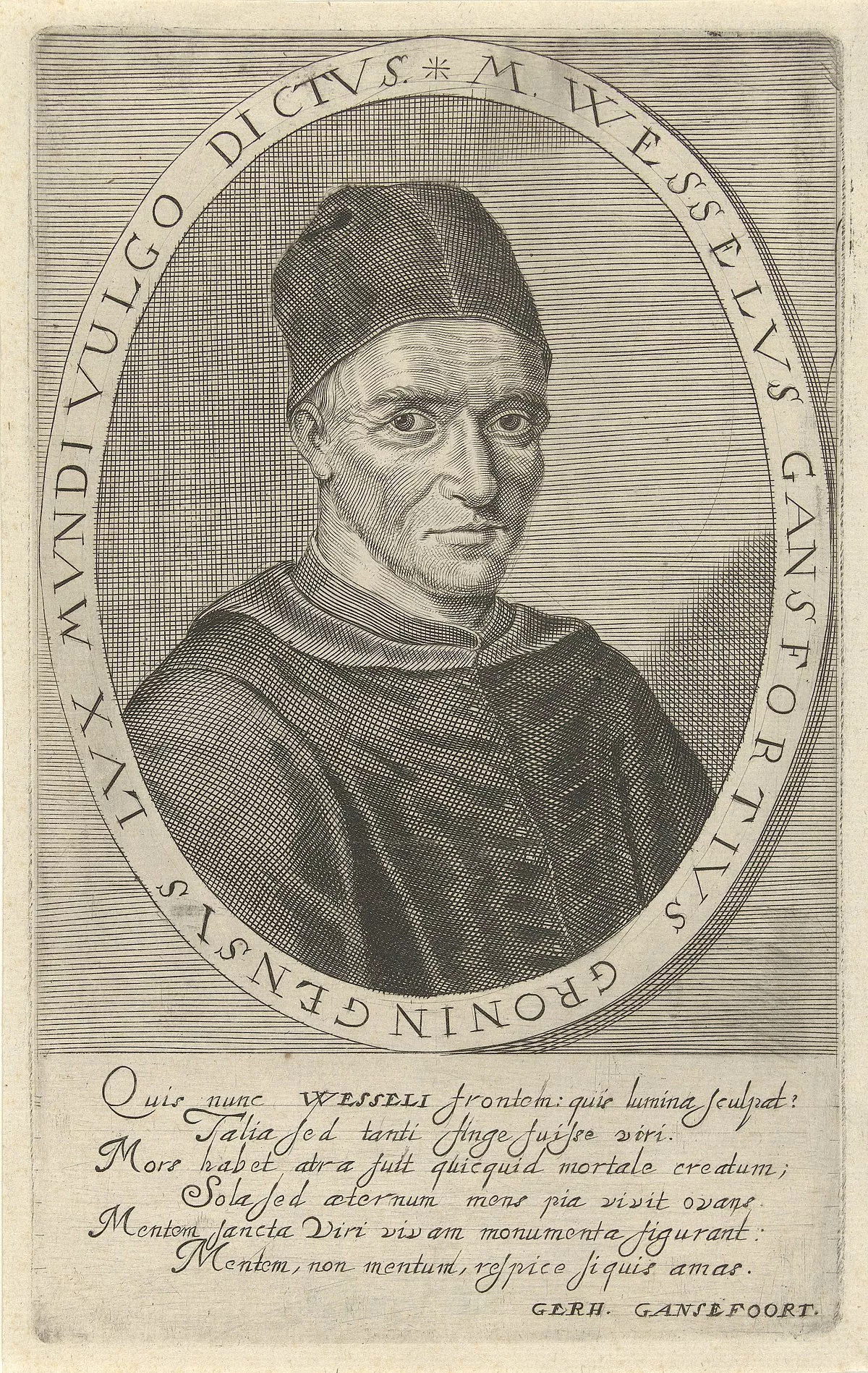 1.
1. Wessel Harmensz Gansfort was a theologian and early humanist of the northern Low Countries.

 1.
1. Wessel Harmensz Gansfort was a theologian and early humanist of the northern Low Countries.
Wessel Gansfort has been called one of the reformers before the Reformation.
Wessel Gansfort protested against a perceived paganizing of the papacy, superstitious and magical uses of the sacraments, the authority of ecclesiastical tradition, and the tendency in later scholastic theology to lay greater stress, in a doctrine of justification, upon the instrumentality of the human will than on the work of Christ for man's salvation.
Wessel Gansfort developed close ties with the monastery of Mount St Agnes not far from Zwolle, and became close friends with Thomas a Kempis.
Wessel Gansfort was granted the degree magister artium in 1452, and remembers with great gratitude that it was here that he first studied Plato.
Wessel Gansfort learned Greek from monks who had been driven out of Greece, and Hebrew from some Jews.
Wessel Gansfort was particularly interested in the Eucharistic theology of Rupert of Deutz, and he scoured local Benedictine libraries for works related to this devotion.
From Rome, Wessel Gansfort returned to Paris and speedily became a famous teacher, gathering round him a band of enthusiastic young students, among whom was Reuchlin.
Wessel Gansfort was welcomed as the most renowned scholar of his time, and it was fabled that he had travelled through all lands, Egypt as well as Greece, gathering everywhere the fruits of all sciences.
Wessel Gansfort was buried in the middle of the choir of the church of the Olde Convent, which stood on what is called the Rode Weeshuistraat but at the time was known as the Straat van de Geestelijke Maagden, whose director he had been.
Wessel Gansfort's bones were unearthed in 1862 in the presence of Gansfort's progeny, members of the American Gansevoort family.
Wessel Gansfort's remains were then relocated to the Martinikerk where a memorial had been erected.
Wessel Gansfort rejected the authority of the Catholic church and believed justification to be a work of God instead of man.
Wessel Gansfort believed that the pope and councils can err and are not infallible.
The sacramental views of Wessel Gansfort anticipated those of Ulrich Zwingli.
Wessel Gansfort believed that the fire of purgatory does not torment but only cleanses the inward man of impurity.